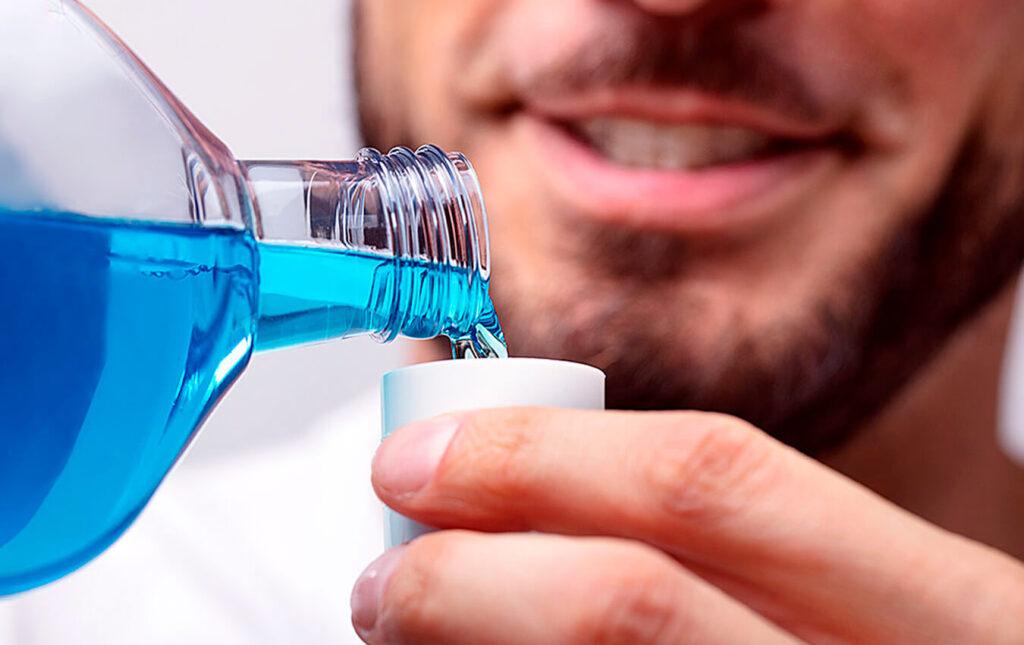
Generally, dentists and the American Dental Association (ADA) agree that mouthwash has some effect on the reduction of bacteria in the mouth, but by itself, mouthwash is not a cure for tooth decay or halitosis. According to the Food and Drug Administration (FDA), mouth rinses are classified as either “cosmetic” or “therapeutic.” Some are a combination of both. The classification depends on the active ingredients contained in the product.
Many of the over-the-counter cosmetic mouth rinses are no more effective than water. They can help remove particles in the mouth and around the teeth before or after brushing, temporarily improve breath and freshen the mouth, and some may have an affect on reducing bacteria.
However, to be effective against bacteria and oral disease, a mouthwash has to be labeled therapeutic (many are available by prescription from the dentist) and have active ingredients that are tested and proven to be effective against bacteria. The FDA regulates therapeutic mouthwash products and the ADA voluntarily endorses those it has found to be efficacious in cavity prevention and in dealing with oral diseases, such as gingivitis. Studies reported by the ADA indicate that antimicrobial mouth rinses and toothpastes have been proven to reduce dental plaque. When used together, flouride toothpaste and flouride mouthwash have been shown in clinical studies to provide extra protection against tooth decay.
If you want to make sure which you are buying (a cosmetic or a therapeutic mouthwash) look for the active ingredients listed on the product. To be considered therapeutic it is necessary that antiseptic, antiplaque and antigingivitis rinses contain these ingredients:
Phenol, like that found in Listerine and Chloraseptic
Chlorhexidine, like that found in Peridex and Corsodyl
Sanguinaria, like that found in Viadent
Products considered to be therapeutic anticavity, antifungal rinses include:
Act+
Fluorigard+
Listermint with Fluoride
Chlorhexidine and Sanguinaria are available by prescription only. Products listed above with a + symbol have received the ADA Seal of Acceptance indicating that they have been tested and proven effective. It’s a good idea to check over-the-counter products for the ADA Seal so you know it has undergone rigorous testing and received an endorsement by the ADA.
Your dentist will prescribe one of these if he feels you need the added boost in plaque or gingival protection. It’s important to remember that while antimicrobial and antibacterial products do help reduce plaque and prevent tooth decay, they also kill the good bacteria that is present in the mouth; so if you have a tendency toward Thrush (oral yeast infection), be sure to discuss with your doctor.

